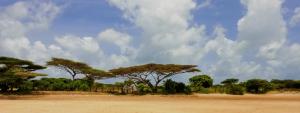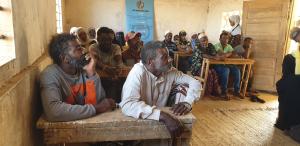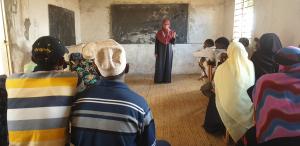
Grants
Marine Conservation
Building Capacity of BMUs in Pate Island – Part II
£7000 awarded
This project is a continuation of the project recently completed by Faza Youth Action Group (FYAG). The previous project Building Capacity of BMUs in Pate Island raised awareness of the need to use legal fishing gear to encourage sustainable fishing and prevent ecosystem destruction and degradation. However, while undertaking that project, FYAG learned there are many issues facing Beach Management Unit (BMU) governance, management, and capacity. Using what they learned, this project aims to tackle some of the core challenges.
Project Length – 5 Months
Problem Statement
BMUs were introduced in 2007 under the Fisheries Department. The objectives of the BMUs laid out in the Fisheries (Beach Management Unit) Regulations 2007 are as follows:
- Strengthen the management of fish-landing stations, fishery resources and the aquatic environment.
- Support the sustainable development of the fisheries sector.
- Help alleviate poverty and improve the health, welfare, and livelihoods of the members through improved planning and resource management, good governance, democratic participation and self-reliance.
- Recognise the various roles played by different sections of the community, including women, in the fisheries sector.
- Ensure the achievement of high-quality standards with regard so fish and fishery products.
- Build capacity of the members for the effective management of fisheries in collaboration with other stakeholders.
- Prevent or reduce conflicts in the fisheries sector.
Currently, the BMU regulations are only available in English. Because of this many BMU members and leaders are unable to understand all the regulations including the powers they have and the bylaws they’re able to enforce. Due to this lack of understanding many BMUs are often not working to their full potential which can lead to resources being mismanaged.
BMUs are viable institutions, however, it’s clear the poor structure and management of BMUs alongside challenges faced in implementing stipulated regulations lead to their ineffectiveness.

Project Summary
This project aims to build the capacity of BMUs in Faza Ward, Pate Island through providing training to communities and BMU boards on the regulations. To do this, FYAG will work with The Katiba Institute to translate the BMU regulations into Swahili. By facilitating this translation, the regulations will be more accessible for community members and BMU leaders leading to greater transparency and accountability.
In these small fishing communities, fisheries management is key to the prosperity of the entire community. FYAG will hold open forums training sessions in the streets to explain the regulations to all members of the community. It is hoped that once the community and BMU members are better aware of the regulations, they’ll be able to hold their BMUs accountable.
Meanwhile, BMU management boards will be taken through the regulations and offered management training including budgeting and planning. The BMUs will be empowered to create the necessary management committees to ensure smooth running of the unit. FYAG will assist on the set up of these and continue to check in after the initial project has ended.
Finally, BMUs will be encouraged to support scholarship programmes for BMU and community members to build the prosperity of communities. FYAG will be working with a member of the Fisheries department to advocate for continued support for BMUs.
Objectives
Empowering/Advocating BMUs in ensuring sustainable use and conservation of aquatic resources through proper education and awareness of their capacity and regulations with regards to the use of illegal gears, observance of closed seasons and areas and implementation of bylaws.

Specific Outcomes
- BMU regulations translated in Kiswahili with copies distributed to fishermen and all stakeholders in the fishing industry.
- All BMUs involved to have operational environmental units, performing their work as stipulated in the regulations.
- Ensure the executive committee is dominated fishermen who will be the decision makers.
- Enhance the performance of all BMU functions.
- Ensure the composition of the BMU includes all stakeholders equally.
- Ensure BMUs are supported by the government bodies with funding, continued training and knowledge sharing and a continuation of capacity building so they can perform their duties efficiently.
- Ensure equal Inclusion of all stakeholders in the co management of the fisheries resource.
- Support BMUs in training of technology that can help BMUs manage their resources and finances more effectively.
- Improve physical infrastructure and social amenities within the Island such as fish landing stations, dispensaries and sanitation facilities.
- Encourage better engagement with community members to make use of their opinions and indigenous knowledge to create bylaws best suited for the local environment.
- Formulate relevant bylaws where necessary.
- Ensure BMUs are holding regular community meetings to encourage community cohesion and transparency from the BMUs.
About the organisation
FYAG is a frontline human rights community based, independent, non-partisan group registered as a CBO in 2010. The core aims of FYAG is to take an active role in defending and safeguarding social Development. To do this FYAG implement educational programs that promote healthy lifestyles to the individuals, families and communities in marginalised areas who are debased and lack freedom. The organisation works towards ensuring provision, protection and participation of community in economic and social rights.
